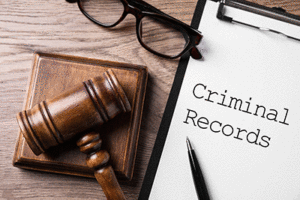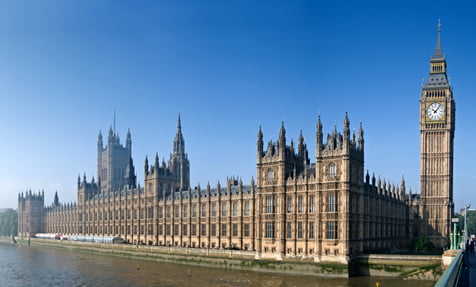UK Criminal Records Search Procedure
The internet has made the UK Criminal Records Search Procedure even easier than ever before. Now it’s simple to obtain criminal records on individuals located anywhere in the UK, including England, Scotland, and Northern Ireland.
There are different procedures for obtaining criminal records for England, Scotland, and Northern Ireland. But any criminal records search will require, at the very least, the name of the person whose records you’re seeking, and documentation demonstrating that you have a need to obtain such records.
 Criminal records checks are conducted by the Disclosure and Disbarring Service. Not every hire, volunteer, or applicant is subject to a criminal records check. Examples of individuals subject to such checks are:
Criminal records checks are conducted by the Disclosure and Disbarring Service. Not every hire, volunteer, or applicant is subject to a criminal records check. Examples of individuals subject to such checks are:
-Jobs or volunteer work that involve individual interaction with children
-Applicants for fostering or adopting children
To conduct a criminal background check, a form must be filled out and certain identity verification documents must be included with that form. The criminal records search costs 44£. Identity verification documents that would be considered acceptable include a passport, driver’s license, or original live birth certificate. Any one of these documents will be enough to establish identity. If these documents are not available, two or more supplementary documents can be used to establish identity.
Remember that when submitting a criminal background check, you must determine whether or not the background check is being done on an eligible employment candidate or individual. Unless the person fits into one of the two categories listed above, it is unlawful to conduct a background check.
For employers, background checks should only be initiated on a successful applicant. That means that individual applicants cannot be checked unless they have received successful or conditional job offers. Large employers that conduct more than 100 background checks a year can register and receive a discounted rate of 300£ per year.
There are other rules when conducting criminal background checks. Employers that utilize criminal background checks must have specific policies on employing ex-offenders. Depending on the circumstance, it may not be possible to exclude individuals with criminal records on the basis of their records alone. Only a codified and vetted policy can justify the refusal to hire an individual ex-offender.
England Criminal Records
Crime rates in England have fluctuated throughout history. The most dramatic rise in crime can be observed between 1810 and 1820, and is thought to be the result of poverty, unemployment and rising food prices following wars with France.
Modern records show that crime levels in England have gradually risen since 1950. In recent years, this upwards trend in recorded crime appears to have stabilised, with levels of victim-based crime and crimes against society largely unchanged. While minor increases can be observed, this is likely to be the result of a growing population. Improvements in crime-reporting practices also play a part, in that the increase reflects a greater number of people reporting crime, rather than more crimes being committed.
The most common crimes in England and Wales are (2018-2019):
· Violence against the person offences – violence without injury (721,106 recorded)
· Theft offences – miscellaneous theft offences (417,886 recorded)
· Other crimes against society – public order offences (477,449 recorded)
The Office for National Statistics (ONS) report an 11% drop in police recorded crime between 2019 and 2020. This decrease could be the result of Covid-19 restrictions.
Other England crime facts:
· There are 117 prisons in England
· The death penalty was abolished in 1969. The last executions took place simultaneously, in 1964, in Manchester and Liverpool.
Wales Criminal Records
The Office for National Statistics publish criminal data for England and Wales as a whole, as the two countries use the same criminal justice system. It can, therefore, be difficult to find up-to-date crime rates for Wales that do not also include English data. However, Welsh records relating to specific criminal proceedings are usually available via the National Archives, or directly from courts in Wales. The incidence rates of specific crimes included in the above section are for England and Wales combined.
Wales has seen an increase in violent crime in recent years, with Welsh police forces reporting a combined 23% increase in knife crime between 2017 and 2018. Wales also experiences a disproportionately large number of drug-related crimes, despite its comparatively small population. This is reflected in the fact that three Welsh districts ranked in the UK top-ten for drug-related deaths in 2019.
Other Wales crime facts:
· There are five prisons in Wales.
· The combined prison population of England and Wales is 78,065 people.
· The death penalty was abolished in 1969. The last Welsh execution took place in Swansea prison in 1958.
Scotland Criminal Records
Scotland operates under a separate criminal justice system to England and Wales. A total of 246,516 crimes were reported in Scotland in the year 2018 to 2019. This represents a 24% decrease in total reported crimes in comparison to the year 2010 to 2011, during which 323,247 crimes were reported. Overall, Scotland has seen a significant drop in non-sexual violent crimes and theft over the past ten years. In this same period, Scottish crime records show a marked increase in sexual crimes and drug-related crimes. This is likely the result of a countrywide law enforcement effort to crack down on murder, assault, and other violent crimes, leaving other types of crime less of a priority. It is also noteworthy that current statistics show the lowest total reported crime rate since 1976, when modern record-keeping practices began.
Crimes of dishonesty currently account for more than 45% of all crimes recorded in Scotland. Such crimes include money laundering, robbery, blackmail, burglary, handling stolen goods, and theft.
Other Scotland crime facts:
· There are 15 prisons in Scotland.
· The prison population is 7,438.
· The death penalty was abolished in 1965. The last Scottish execution took place in Aberdeen, in 1963.
Northern Ireland Criminal Records
Like Scotland, Northern Ireland has an independent criminal justice system. Despite the country having its own judiciary system, the UK supreme court still remains the final court of appeal for Northern Irish cases.
Prior to the Good Friday Agreement in 1998, Northern Ireland had the lowest rates of petty crime in the UK, as compared to Scotland, England and Wales. ‘Petty crime’ includes but is not limited to minor crimes such as theft, trespassing and shoplifting. Since the conflict in Northern Ireland ended, incidences of petty crime have been on the rise. Historically, the most common crimes in Northern Ireland are robbery, murder, public disorder, racketeering, assault and terrorism.
Overall, crime rates in Northern Ireland have gradually declined over the past 20 years. In the year 2002 to 2003, 84 crimes per 1000 people were reported; in 2019 to 2020, just 59 crimes per 1000 people were reported.
Other Northern Ireland crime facts:
· There are three prisons in Northern Ireland
· The prison population is 1,402 people.
· The death penalty was abolished in 1973. The last execution took place in Belfast, in 1961.
How Do I Check My Criminal Record?
A criminal record check in the UK is also known as a DBS check, or Disclosure and Barring Service check, which is performed by the government. There is a nominal fee for this background record and is often required to obtain a role or apply for a job in the UK. To being this process of applying to check your criminal record you will be required to submit your addresses for the last 5 years, your passport, UK driving license as well as your National Insurance Number. These are all verifying pieces of information to run this DBS check on yourself. If you’re applying for a role or a new job, a DBS check is also typically required. Depending on the nature of the job and responsibilities there are different DBS checks that are required and some have much more detailed information available. This criminal record check process typically takes a few weeks and you must be over 16 years old to apply. See the UK.gov website for more information about the DBS check requirements.
Advertising Disclosure: This post may contain promotional links. publicrecordsearch.co.uk may be compensated if you use these links.

